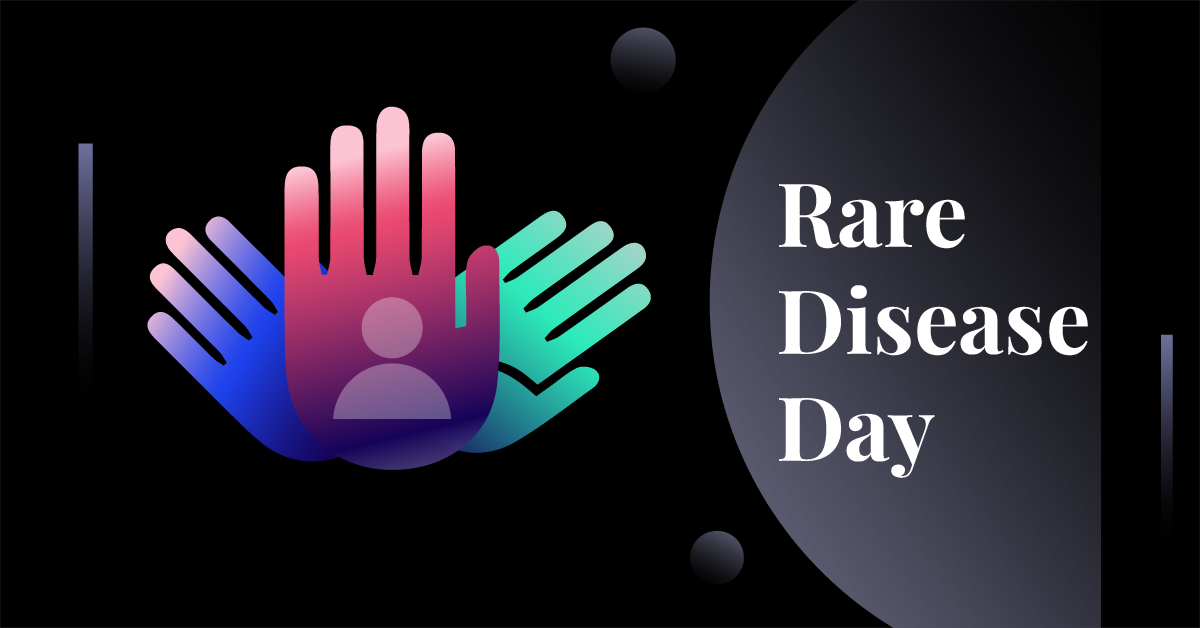Creutzfeldt-Jakob disease is a degenerative brain disorder. It is fatal and occurs in 1-2 persons per 1 million population every year. Pulmonary arterial hypertension is a progressive disorder characterized by high blood pressure, impacting 15 to 50 people per million. Hepatoblastoma is a liver cancer that typically occurs in the first 3 years of life and could affect 2-3 people in a million. These three are just a few among the 10000+ rare diseases as per National Organization for Rare Disorders (NORD). Collectively, these rare diseases impact 400 million people worldwide – more people than cancer and AIDS combined - and managing them has been a challenge.
Today, the 29th of February, is Rare Disease Day, marking the rarity of the last day of February. We, at ZoomRx, surveyed 100 MDs from 4 different specialties - Oncology, Neurology, Cardiology, and Hematology – who treat rare diseases to gain their perspectives on managing these conditions. They reveal how they leap through the hurdles and the maintain a shimmering hope for treating their patients. Key findings from the research include:
- Diagnosing & Managing Rare Diseases
- Unmet Needs
- Patient Facing Challenges
- Role of Pharma Manufacturers
Diagnosing & Managing Rare Diseases:
Only 17% of the MDs surveyed were very confident in managing and diagnosing rare diseases, with cardiologists leading the pack with an impressive 36%. Less than 10% of neurologists and oncologists indicated being highly confident at treating rare disease conditions.
With challenges abound, MDs highlighted the development of treatment plans and access to specialized testing and diagnostic tools as major hurdles in rare disease management and diagnosing rare diseases. Three-fourths of neurologists cited limited knowledge as a significant challenge, signalling the need for enhanced training and resources.
Also, read: Gene Therapies Bringing Hope to Rare Disease Management
Hurdle 1: Developing a treatment plan.
Today, we have treatment options for only <10% of rare diseases. This is despite the approval of ~400+ drugs in the past 4 decades since Orphan Drug Act came into practice in 1983.
MDs see developing a treatment plan for a rare disease as a considerable challenge and rightly so. Even for diseases that have a treatment option, MDs walk on thin ice with limited know-how on pathology, mechanisms, and the individual variability in patients' responses. When a disease does have an option, the cost of treatment is often out of reach, a sentiment echoed more strongly among cardiologists and neurologists.
Despite it being the biggest hurdle, HCPs see hope in novel approaches. With gene-targeted therapies for rare diseases like SMA, Sickle cell disease, and others, they garner substantial support from over 60% of MDs as the most promising therapeutic approaches - reflecting the growing interest in precision medicine and personalized treatments for rare diseases.
Hurdle 2: Specialized Diagnostic Tools
With rare diseases, the average time to diagnose is 4.8 years. This diagnostic odyssey not only leads to poor outcomes for the patients but also places considerable strain on the patients, caregivers and the healthcare system. MDs indicate the need for early detection as their second biggest hurdle.
As 8 out of 10 rare disorders are genetic in nature, genetic testing emerges as the most valuable diagnostic tool, preferred by 80% of MDs. For their second choices, hematologists value biochemical and medical testing (77%). cardiologists prioritize imaging studies (76%), and oncologists prefer histopathological analysis (68%) to better understand and diagnose diseases.
Unmet Needs
Improved efficacy stands out as the highest unmet need across specialties, except for cardiologists, who indicated that high costs need to be lowered as their primary unmet need. MDs overwhelmingly prioritize new therapeutic targets and modalities in research (71%), with early diagnosis and personalized medicine also gaining significant attention. To improve care, MDs identify clinical decision support tools and diagnostic algorithms (68%), educational programs on specific rare diseases (58%), and access to referral networks and specialist consultations (56%) as the most helpful resources, emphasizing the importance of collaborative approaches and ongoing education in rare disease management.
Patient Facing Challenges
MDs indicated that with existing treatment options, the high cost of medication and insurance coverage pose as significant challenges faced by patients. To overcome said challenges, MDs suggested the following actions:
- Expansion of access to clinical trials and early access programs (30%)
- Development of affordable and sustainable treatment options (28%)
- Improved insurance coverage policies and reimbursement mechanisms (21%)
Also, read: Lessons from Rare Disease Market Research for Treatments
Role of Pharma Manufacturers
MDs acknowledge the pivotal role that pharmaceutical manufacturers can assume in the future of diagnosing, treating, and managing rare diseases. Collaborative partnerships with academic researchers and clinicians (57%) and prioritizing development of affordable and accessible treatments (51%) are identified as the top two areas where pharmaceutical manufacturers could swiftly influence the management of rare diseases.
Despite rare diseases facing multiple challenges such as the complexities of disease mechanisms, limited funding/resources, lack of data and awareness, MDs treating rare diseases are optimistic. With advancements in therapeutic approaches and diagnostic tools unfolding, we need to address knowledge gaps, enhance interdisciplinary collaboration, and provide targeted resources to improve patient outcomes in parallel to advancing the research and care in rare disease management.
Get in touch with us for more information.


